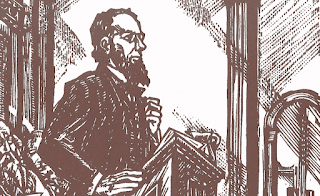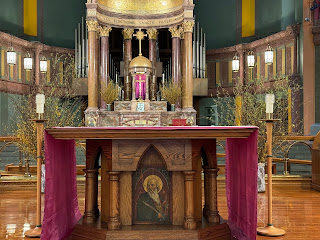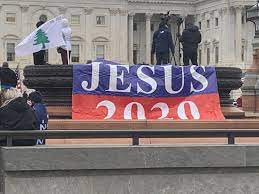In a November 9, 2006, Catholic New York column, cardinal Dolan’s predecessor, Edward Cardinal Egan, wrote that, as a saint, Hecker would “be an inspiration for us all,” and he described Hecker’s life as “nothing less than an adventure in faith.”
An adventure in faith, indeed! Like Christian history’s most famous seeker, Saint Augustine, Hecker had examined the leading intellectual and religious currents of his time, paying intense attention to his own inner spiritual sensibility, before finally finding a permanent home in the Roman Catholic Church. In our contemporary idiom, Hecker was “spiritual but not religious” for much of the first 25 years of his life. The very personal story of his spiritual search, of his intense attention to his own inner spiritual sense, eloquently exemplifies the perennially human appeal of such a spiritual search and certainly speaks to the spiritual longings of some in our own (admittedly more secular) society today. What was especially significant about Hecker’s “spiritual but not religious” period, of course, was that he did not remain that way. For Hecker, seeking was never an end in itself. The point of seeking was finding. Having found fulfillment in the Catholic Church, he never desired to look farther. Rather, he desired to devote his life to helping others – especially other seekers, such as he himself had been – to find the truth in the Catholic Church. Hecker’s enthusiasm for his new faith and his commitment to the Church – from his initial conversion experience as recorded in his Diary, through his active ministry as a priest and missionary preacher, to his final mature exposition in his last book, The Church and the Age – remain exemplary.
Looking back on Hecker’s ideas from the vantage point of the present, we can appreciate his consistent commitment to call American Catholics to the fullness of their mission to evangelize their society and – to that end – to enhance the quality of Church life, to build up the Catholic Church in the United States. We may be even more apt to appreciate today the importance of internal Church community life for the effectiveness of its mission outward to society. Hecker’s invitation to his colleagues “to adapt ourselves to accept what is good in our social and political customs and institutions” was an expression of missionary vitality. He was convinced that the same Holy Spirit who spoke in his own heart and whose speaks in human hearts in general simultaneously speaks through the Church, and that the evangelization of American society through missionary action aimed at the conversion of citizens will benefit both Church and civil society.
In 19th-century Europe, the Catholic Church was struggling to survive as an institution against an increasingly challenging political order that sought in multiple ways to constrain it. Classical liberalism’s privatization of religion deepened the rift between modern society and religion. Ever since, the Church has been challenged to counteract the social fragmentation associated with modernity and to reconnect increasingly isolated individuals into a community by preserving, repairing, or restoring religious bonds.
Hecker never wavered in his conviction that what he had found in Catholicism – and what he had been able to find only in Catholicism – could and would be America’s answer as well. He was confident “that neither Calvinism nor Unitarianism or Transcendentalism would ultimately have much appeal to the moderate American mind.” For Hecker, Catholicism offered a religious alternative which recognized the necessity of revelation and grace while also appreciating the permanence and value of nature and reason.
Hecker combined Catholic universalism and a distinctly American self-understanding of the relationship between religion and society in a providential perspective, which could work within the framework bequeathed by classical liberalism’s separation of society and state.
Hecker’s simultaneously uncompromising affirmation of Church authority and his equally clear commitment to the providential purpose for that authority remain even more relevant in this similarly religiously and socially fragmented century, in which the Church is constantly being challenged not just to proclaim its authoritative answers but also to incarnate a communal experience of the Body of Christ in the world, which responds to the deepest desires and questions of people both outside and inside the Church.
Whereas for Hecker’s famous contemporary Karl Marx (1818-1883), religion meant alienation, and its survival in American society showed the inadequacy of religion’s purely political separation from the state, for Hecker Roman Catholicism was the providential fulfillment of the most authentic aspirations of human nature; and its power to transform society through the conversion of citizens more than compensated for the Church’s loss of political power thanks to its separation from the State.
Servant of God Isaac Hecker continues to provide an inspirational model for our contemporaries to think about the search for God, receptiveness to God’s grace, the experience of conversion, the giving of oneself heroically in service, and the furthering of the Church’s mission in our time and place.





